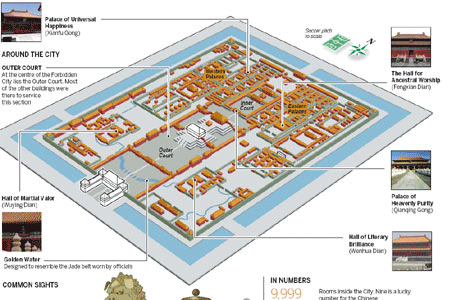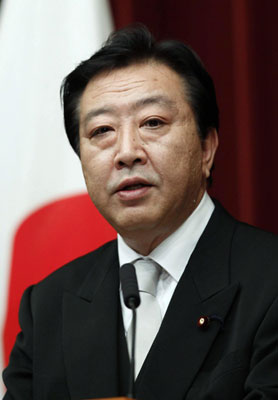Asia Pacific
Japan's new PM gives encouraging signs on China ties
Updated: 2011-09-02 21:02
(Xinhua)
BEIJING - Japan's new Prime Minister Yoshihiko Noda recently made some positive statements on Japan's future relationship with all Asian neighbors including China. Yet to improve China-Japan ties, the two nations still need to handle their remaining disputes properly.
|
|
Owning to adversities from the global financial crisis and the triple blow of a massive earthquake, a tsunami and nuclear radiation leaks, the nation's economy is still facing a bevy of grave challenges.
China's fast economic growth, despite a sluggish global recovery, has offered plenty of business and investment opportunities for Japan, of which China is the largest trading partner.
China and Japan, two major players in the Asia-Pacific region, can also gain substantively by working together to address a number of regional or global challenges like the denuclearization of the Korean Peninsula and climate change.
Yet it has to be acknowledged that a strong cooperative relationship needs to be built not only on flourishing trade links but also on their mutual respect for maritime sovereignty and core interests.
It is widely known that before his election as prime minister, Noda had made some controversial comments on Japan's wartime past, and China's sovereignty over the Diaoyu Islands.
These remarks are contrary to the historical facts and constitute a serious infringement of China's territorial sovereignty, raising concerns in China and some other Asian nations.
It is hoped that Japan's new leader and his government could focus on working with China on forging a cooperative relationship, rather than continuing to handle the two nations' differences in an irresponsible manner.
As nations around the world are becoming ever more interdependent, a troubled China-Japan relationship would serve neither the interests of the two countries nor those of the region and the world as a whole.
It's only natural that differences and even disputes exist between neighboring countries. But what counts the most is how the two sides could come to soothe the other's concerns and properly handle their differences.
It is China's consistent policy to seek a peaceful settlement of its disputes through negotiations on the basis of an equal footing with any nations in the world, including Japan.
On the question of the Diaoyu Islands, the issue of China's sovereignty is not negotiable. China follows the principle of shelving differences and seeking joint development, which also fits Japan's interests.
In addition, the Japanese side also needs to dispel its concerns over China's military modernization.
In one of his recent speeches, Noda compared himself to a loach, indicating his pragmatic approach in politics. Therefore, it is hoped that Japan could improve its ties with China according to Noda's vowed leadership style.
E-paper

Unveiling hidden treasures
The Forbidden City, after the Great Wall, is the most recognized tourist site in China.
Short and sweet
Game for growth
Character reference
Specials

China at her fingertips
Veteran US-China relations expert says bilateral ties have withstood the test of time

The myth buster
An outsider's look at china's leaders is updated and expanded

China in vogue
How Country captured the fascination of the world's most powerful fashion player

